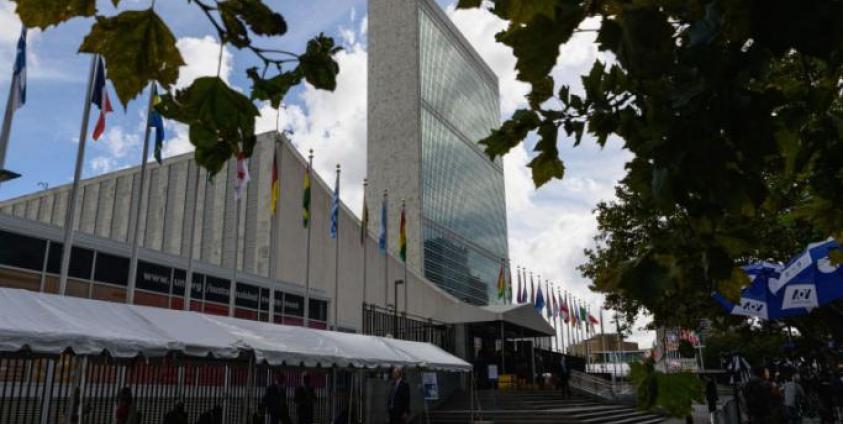The Myanmar crisis is set for discussion at the UN Human Rights Council session beginning next week, but the focus will be on the conflict in Ukraine, with Russia's top diplomat among those set to address the increasingly polarised assembly in person.
Hours into a full-fledged Russian invasion of its neighbour early Thursday, Moscow confirmed that Foreign Minister Sergei Lavrov was still planning to come to Switzerland to deliver his statement on the morning of March 1, a council spokesman told AFP.
That same day, his US, British and European Union counterparts are due to address the council via video message, with Ukraine's top diplomat scheduled to do the same the next day, on Wednesday.
While the main UN venue for discussing the crisis will be the Security Council in New York, Swiss Ambassador to the UN in Geneva Juerg Lauber told AFP such "big international tensions have an impact on the debates in Geneva".
The main annual session of the Geneva-based rights council will surely focus on Ukraine from the first day, on Monday, with UN Secretary-General Antonio Guterres and UN rights chief Michelle Bachelet expected to address the crisis in their opening remarks.
The session, due to last an unprecedented five weeks, is scheduled to focus on a wide range of dire rights situations, including in Myanmar, Afghanistan, Belarus, Ethiopia and Venezuela.
Also keenly watched will be whether Bachelet finally publishes a long-delayed report on the situation in China's Xinjiang region, where rights groups say at least one million Uyghur Muslims have been incarcerated in re-education camps -- a charge Beijing vehemently denies.
- Urgent debate? –
Ukraine also figured on the agenda well before Thursday's invasion began, with Bachelet due to present an oral report on the long-simmering conflict in the east of the country on March 29, followed by a council debate.
But it is highly unlikely the top UN rights body will wait that long to officially discuss the Ukraine situation.
It is widely expected that the council will be asked to swiftly host a so-called urgent debate on the conflict, although no request had yet been registered Thursday morning, a council spokesman told AFP.
For such a request to go through, it would need the backing of at least half of the council's 47 member states.
All the main actors in this conflict are currently members, including Russia and Ukraine, and with the United States having just rejoined last month, after former president Donald Trump withdrew the country in 2018.
During the session, Ukraine is planning to present a resolution on the negative effects of disinformation on human rights, and will on March 1 host a side-event on the situation in the Crimea peninsula, annexed by the Kremlin in 2014.
Russia meanwhile is expected to bring in a Crimean representative to denounce rights abuses by Ukraine, while a group of countries appears to be preparing a joint statement slamming Russia.







